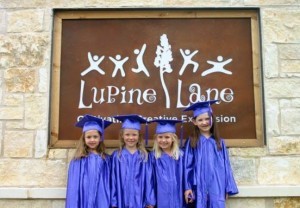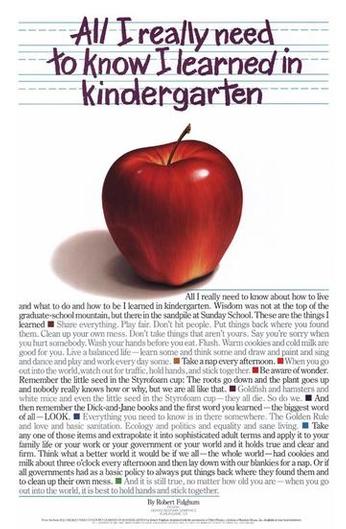Why private Kindergarten? I asked myself this in Spring 2013 over and over and over again.
Growing up, there were no private Kindergartens as alternative options to public school, unless a family chose to enter into a private school system, which were mostly religion-based and a choice families made that was generally part of a long-term educational plan for their child.
The option of an additional year in a private, small, loving classroom, where early childhood education would be championed, lessons would be developmentally appropriate, aligning with logical assessments and teachers would not be stressed by paperwork or preparing for state exams several years away was not something people thought about at the time (1988).
However, it’s a not-so-hidden-secret that much has changed in Kindergarten since 1988. After many undergraduate and graduate education classes, several NAEYC conferences and time spent in Kindergarten classrooms, it is obvious that the stakes are higher in ways that are not necessarily producing results or more importantly, happy kids.
I remember Kindergarten fondly–we were energetic, vibrant kids, incredibly excited to get to school every day to do our work. We spent our 6 hour days in a classroom of about 15 children and 2 teachers, constructing with blocks, working in small groups or individually at table centers, creating lots of art work, enjoying dramatic play, learning to read (for those of us that were ready) and even laying down for rest time! Rest time? In New Jersey Public Schools? Yes! Learning was play-based and we gained practical experience in some of the crucial life lessons that Robert Fulghum writes about in his poem and book, All I Really Need to Know I Learned in Kindergarten.
It seems to me that Kindergarten in 1988 was more geared to developing a love for school as well as the important foundational concepts that we would need to be successful and happy as we continued our academic journey. Academics were woven in to our play and projects, and many of us entered first grade reading chapter books as well as adding and subtracting numerals. We developed a mastery of these academic concepts as we progressed through developmentally appropriate and fun projects and play. This structure made learning fun and easy. We became enamored with school and ready for the challenge of the grades beyond.
In 2012, I noticed many parents keeping their children in preschool for an additional year. I immediately thought about Malcom Gladwell’s Outliers, particularly the chapter that discusses how the most successful hockey players are the oldest in the league. The older players were more physically and mentally developed and prepared than the younger players. Because of this advantage, they showed greater promise and received more attention and training. Therefore, they had a double advantage. From observations and conferencing with parents and Kindergarten teachers, it seemed that many–if not all!–children could benefit from an additional year in a nurturing environment, allowing them time to grasp their own learning style and further develop, but still be challenged by new, complex concepts.
At the same time, I met with parents that were eager for their child to move forward in school faster. Some children had birthdays close to the cutoff date of September 1. Some were obviously significantly advanced for their age and ready for greater academic challenges. And, some children were on par with Kindergarten entry expectations, but seemed to thrive in a smaller, project-based, experiential education setting. These children could also benefit from an additional year in a challenging, supportive learning environment, perhaps surpassing what is possible in the larger classrooms of public Kindergarten.
Both cases seemed to indicate the obvious: parents want to give their child every benefit and advantage possible, especially given the current climate in public schools where there is a major focus on testing versus developing young minds, hearts and bodies.
It was apparent to me that all of these children could and would be best served in a small class setting where lessons, materials and supplies are developmentally appropriate and the focus is developing the whole child: academically, creatively, social-emotionally and physically. Each child would gain an understanding of the importance of respecting and loving themselves and others as well as their own unique process for learning. In a small class setting, with a teacher who deeply cares and understands each child, they could firmly grasp how they best learn as they develop the foundational concepts that are so important during the Kindergarten year.
And, with that, we began Kindergarten at Lupine Lane in 2013-2014. We developed a curriculum informed by current research which utilizes a whole child approach, emphasizing the equal importance of four domains: academic, creative, social-emotional and physical. We use experiential education and projects to scaffold mastery of Key Developmental Goals, within each of these four domains. Academically, we focus on literacy, math, science and technology, using the Houghton Mifflin Harcourt Rigby PM Series, the Epson 595Wi Interactive WGA 3LCD Projector with SMART Software and many other materials and supplies aimed to develop necessary knowledge and skills. Children are respected and celebrated for their individuality and unique learning styles in a supportive and loving learning environment.
This year, I’m thrilled and honored to embark on an exciting and adventurous journey with the Kindergarteners. I am over-the-moon to return to my passion of teaching and to guide the kids through interesting, in-depth projects that will foster the knowledge and skills they need in school and in life. Kindergarten at Lupine Lane will certainly be a magical, wonderful, enriching and fulfilling learning experience that will develop the mind and soul of each child and foster a love for learning, which will surely prepare each of them, wholly and fully, for school and the world beyond.



